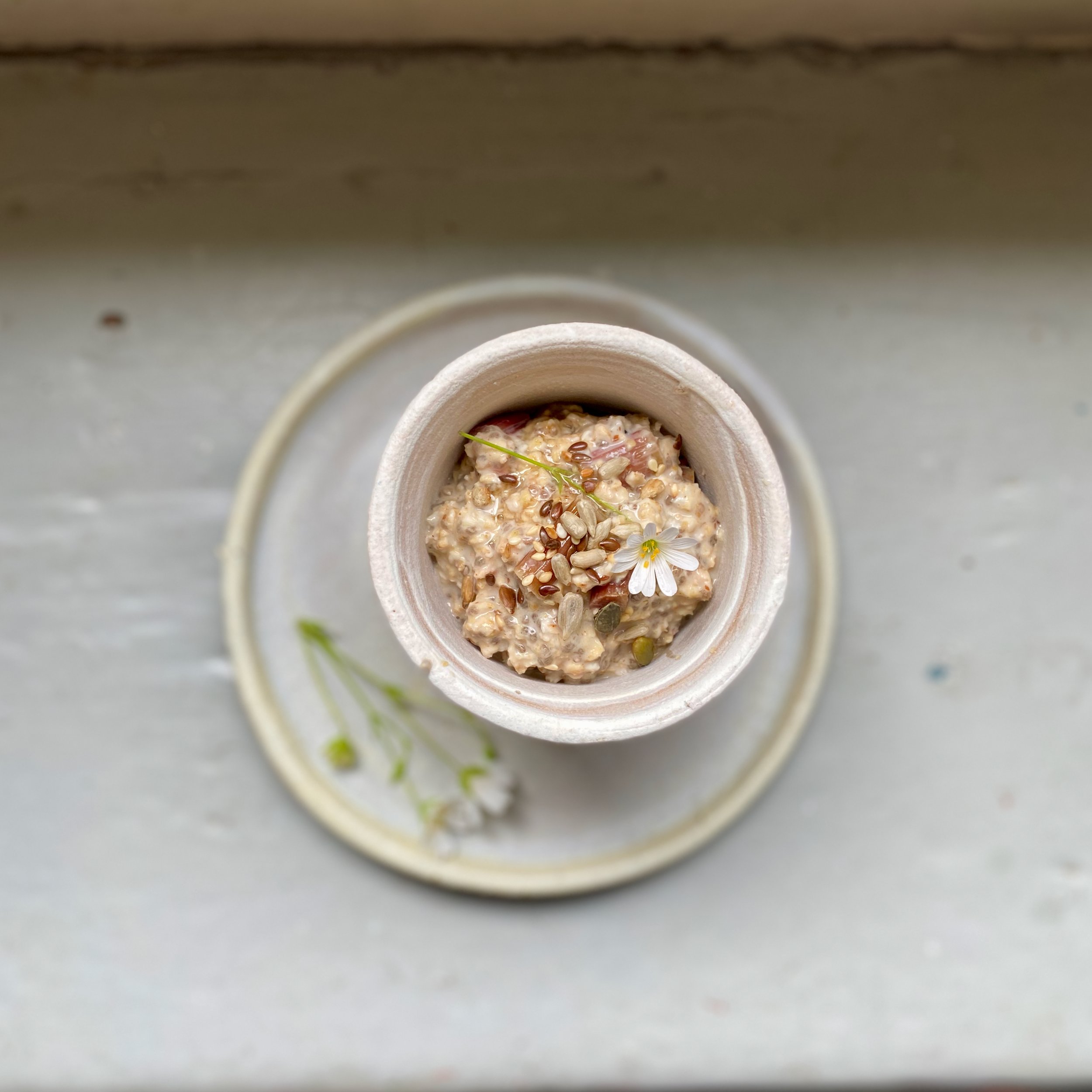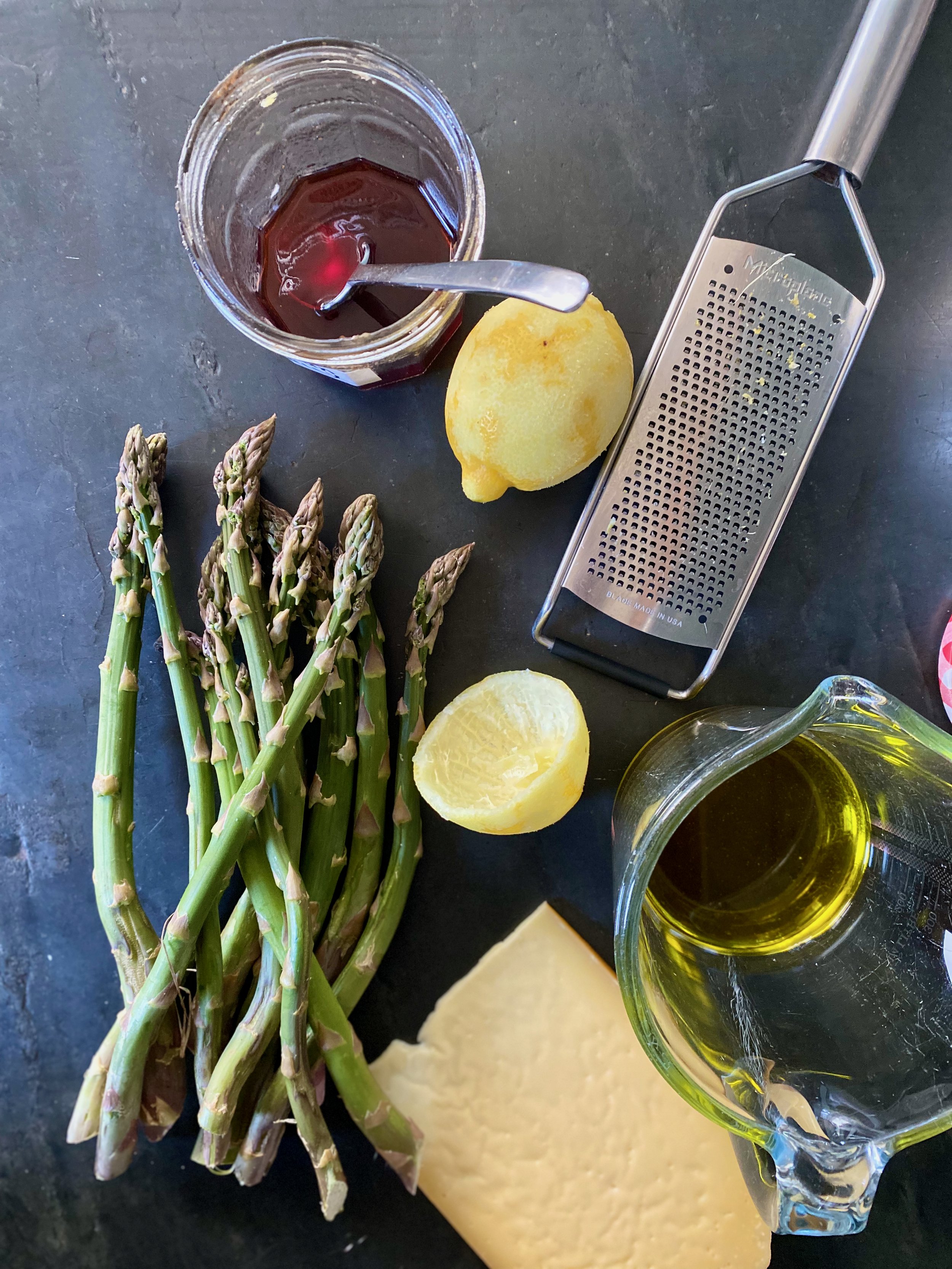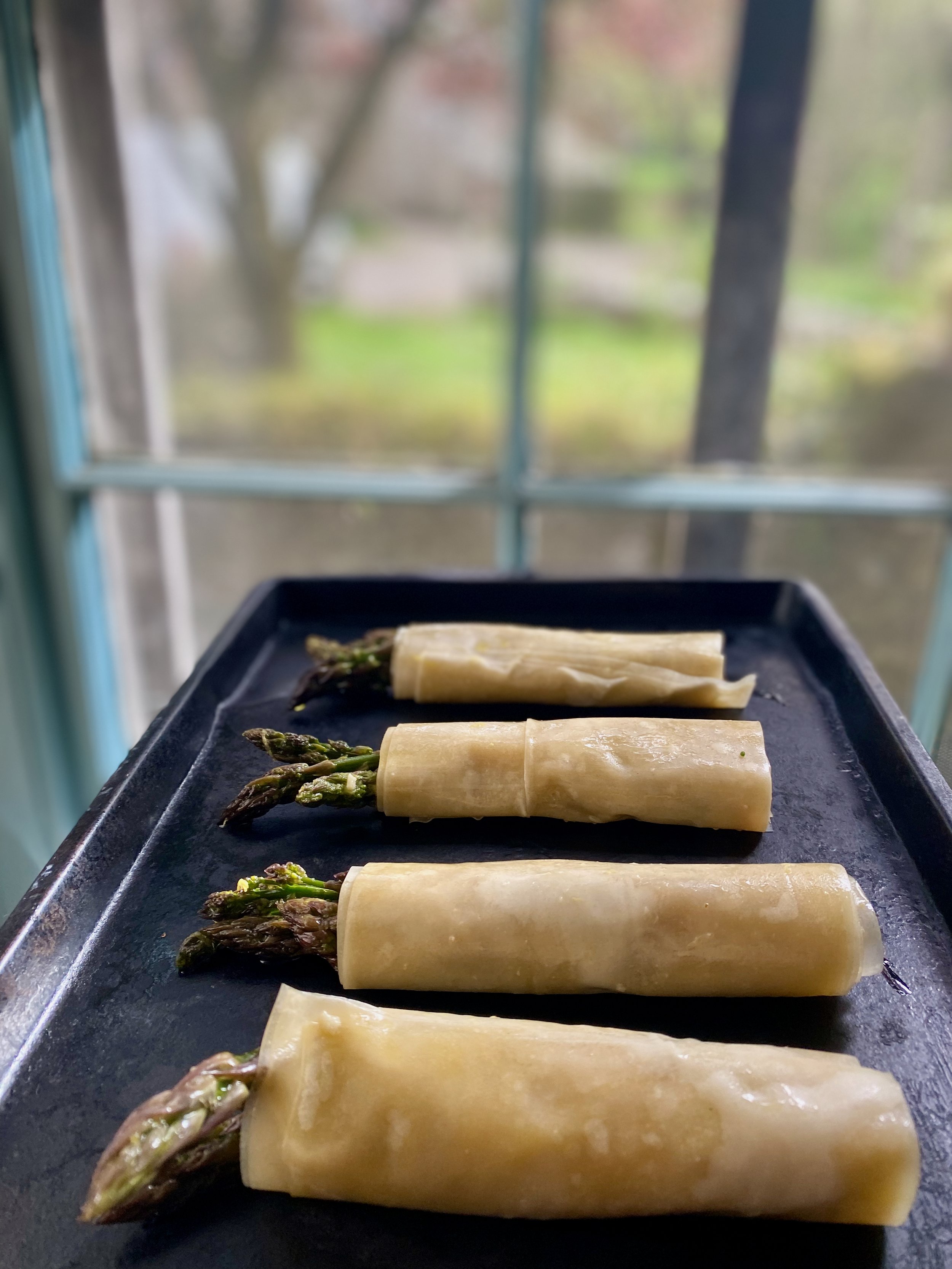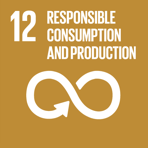Breakfast & Beyond - Episode 14:
Cleaner Seas with Avril Greenaway
Avril Greenaway is my guest for Episode 14 of Breakfast & Beyond. Avril is a designer, community activist and entrepreneur, working within the ocean advocacy space. Based in Bude in North Cornwall, Avril’s design work, combined with a love for being in, on and by the sea, has taken her on a fascinating journey focused on raising awareness of, and finding solutions for, the microplastic pollution that is having such a devastating impact on our waterways and ecosystems.
Avril has been involved with the Cleaner Seas Project (a Bude-based community group) for 10 years, initially getting involved to create engaging campaigns to raise awareness of microplastic pollution but as you will hear, subsequently getting involved with everything from beach cleans to working with local businesses and hosting conferences; then more recently Avril has become a founding member of the Cleaner Seas Group, which was established with the intention of finding practical, scalable solutions for tackling microplastic pollution. They are in the early and exciting stage of rolling out a microfibre filter for washing machines; did you know that approximately 91 million microfibres are released into our waterways by each household in the UK, each year, as a consequence of washing clothes? I didn’t until talking with Avril …
“We’re all responsible for what ends up in our waste system [..]. it’s trying to make people aware that these big pieces [of plastic] break down into smaller and smaller pieces, that they never disappear, and that those tiny pieces will become so tiny that they can be absorbed into your blood system”
Welcome to Episode 14 of Breakfast & Beyond .. listen via Apple Podcasts, Spotify, Stitcher & Tune-In
Breakfast: recipes, producers & growers …
Roasted Rhubarb Overnight Oats (see recipe)
Asparagus & Lemon Filo Parcels (see recipe)
Asparagus from St Enodoc Asparagus
Cheese from Cornish Gouda Co
Granary loaf from Bellamama Deli
Yoghurt and butter from Trewithen Dairy
Apple juice from Trenderway Farm
Milk from Green Cow Dairy
Tamar Valley honey, sourced via Green Cow Dairy
Freda’s peanut butter, sourced via Colwith Farm Shop
Strawberry jam by Boddington’s Berries
VitaminSEA juice by Cornish Seaberry
Coffee by Lars & Margo
Sustainable living issue: microplastics
Microplastics are defined as particles with a size less than 5mm. They are derived from a wide range of sources including from larger items of plastic that break down over time into smaller pieces. Microbeads are a type of microplastic that are sometimes added to beauty products such as exfoliants, cleansers and toothpastes. Tiny particles of microplastics pass through water filtration systems into our land and waterways, ending up in the ocean. The scale of the issue is highlighted in the information below:
Microplastics are not a recent problem; according to the United Nations Environment Programme, plastic microbes first appeared in personal care products about fifty years ago (Pubmed).
It’s estimated that 11 million tonnes of plastic enter the ocean every year. Nearly a million tonnes of this goes into the sea as “primary microplastics” meaning they’re already less than 5mm in size (Marine Conservation Society UK).
It’s estimated that 35% of primary microplastics come from domestic and industrial washing cycles (Marine Conservation Society UK).
It is thought that we use plastic cutlery once for an average of three minutes, but it remains in the environment for hundreds of years. Single-use plastic, including food packaging, is also one of the biggest contributors to plastic pollution (Natural History Museum).
It is predicted that by 2050 there could be more plastic than fish in the world’s seas (The Guardian).
It is estimated that one load of washing in a machine releases approx 700,000 microfibres (Natural History Museum - this web page offers an informative, easy-to-read overview on the issue of microplastics)
Approximately 91 million microfibres are released into the water system per household per year in the UK (Cleaner Seas Group).
There is estimated to be 1.4 million trillion microfibres in our oceans and they are believed to be one of the biggest plastic polluters on our Planet (Cleaner Seas Group).
Plankton, which are at the very bottom of the food chain, eat microfibres that make their way into the oceans. Microplastic pollution has been detected in human blood for the first time, with scientists finding the tiny particles in almost 80% of the people tested (The Guardian).
In 2018 the UK government banned the use of microbeads in cosmetics and personal care products (Gov.uk). The Cleaner Seas Group is involved with an All Party Parliamentary Group on Microplastics. These are examples of steps in the right direction, but more needs to be done at a policy and large organisational level to tackle the issue of microplastics.
Words to action: what can we do?
Avril makes the point that reducing our consumption is key, alongside looking at addressing how to deal with waste plastics that already exist or will be created due to future production and consumption.
Focusing on clothing in particular, buying second hand or choosing natural fibres when buying new clothes, reduces the amount of synthetic (oil-based) textiles that are created, and from which microplastic particles will end up polluting our land and waterways either through washing or at the end of their life cycle.
Avril’s tips for washing clothes to reduce synthetic microfibre shedding: reduce the amount that you wash your clothes, only wash if necessary; fill up your washing machine; keep the temperature setting as low as possible; wash on a ‘delicate’ cycle as this reduces the amount of friction created by the machine; consider installing a Cleaner Seas Group microfibre filter to your washing machine once they come to market later in 2022 - and for the future, look out for washing machines that come with an integrated microfibre filter.
Choose beauty products (such as cleansers, exfoliants and toothpastes) that have natural ingredients, without using plastic-based microbeads.
Recycle plastic according to your local council’s guidelines (see Cornwall Council recycling guidelines). Where possible, try to avoid buying products that use plastic that cannot be recycled.
Take part in community cleans to help clear up microplastics that arrive on beaches and in your local area. Check out the ‘2 Minute Foundation’ that promotes cleaning up the planet two minutes at a time; pitch in with a National Trust beach clean - they look after 780 miles of coastline.
Contact companies and organisations about the issue of microplastic pollution, letting them know the changes that you, as a consumer, you would like to see them make in relation to their products, packaging or services.
Consider writing to your MP about the issue of microplastic pollution - contact your MP setting out your concerns, and actions you would like to see happen.
Remember: small individual steps do, collectively, make a difference. Talk about the issue of microplastic pollution with those around you. We are all influencers within our own social networks, from our personal relationships to within the institutions we connect with such as work place, healthcare and education settings.
Resources & links from our conversation…
Avril’s work:
Microplastic design · Cleaner Seas Project · Cleaner Seas Group · Instagram
People, organisations & businesses that Avril works with / recommends:
Adam Hall of Surfdome · Amanda Winwood of Made for Life Organics · Andrew Cotton - Big wave surfer & motivational speaker · Bude Gin · City to Sea ·
Deli Farm Charcuterie, Delabole · Emily Scott - restauranteur & food writer based at Watergate Bay · Iris - art licensing, based in North Devon ·
Surfer’s Against Sewage - Safer Seas App · Vicky Barnes - holistic massage therapist based in Bude
Sustainable Development Goals
The UN’s Sustainable Development Goals (SDGs) are 17 targets representing a universal call to action to end poverty, protect the planet and ensure that all people enjoy peace and prosperity by 2030. ‘Everyone is needed to reach these ambitious targets. The creativity, knowhow, technology and financial resources from all of society is necessary to achieve the SDGs in every context’ (UNDP). Translating these global objectives to tease out their relevance at the individual and small-organisational scale can inspire us to connect with these important global themes and consider what we are doing - and what more we can do - to make a contribution that supports our own work and wellbeing along with benefiting other people and the planet.
In Episode 14 our discussion referenced the following Sustainable Development Goals:
3 - Good Health & Wellbeing - tackling microplastic pollution is about improving the health and wellbeing of people, along with the environment. Microplastics have been found in human blood, showing they are working their way up food chains, and entering our bodies through other means such as air pollution. Cleaning up the environment for example through beach cleans also creates and maintains green and blue spaces that support our wellbeing.
9 - Industry, Innovation & Infrastructure - The Cleaner Seas Group are creating innovative solutions to environmental problems, which they are in the process of scaling up and becoming industry leaders in their field of expertise.
12 - Responsible Consumption & Production - the Cleaner Seas Group business model is about the triple bottom line: people, planet and profit. They are seeking to create products (initially their microfibre filter) using responsible consumption and production techniques from product design through to issues such as packaging. Their whole ethos focuses on raising awareness and educating on the the issue of microplastics, as well as creating technological solutions.
14 - Life Below Water & 15 - Life on Land - The Cleaner Seas Group exist to design solutions to tackle microplastic pollution; microplastics pollute our land, waterways and end up in our oceans. By addressing microplastic pollution, the Cleaner Seas Group are helping to protect both life below water and on land.
Podcast recording: behind the scenes …
Thank you for listening!
Thank you for listening to Breakfast & Beyond: Conversations from Cornwall on Sustainable Living. If you enjoyed listening I’d love it if you could subscribe to the podcast, rate it, and share episodes with friends and family who would enjoy them. You can listen and subscribe via Apple Podcasts, Spotify, Tune-In or wherever you find your podcasts.
I’d love to know your thoughts - please join the conversation and get in touch by email tia@botelet.com or instagram. Thank you and I look forward to sharing next month’s episode with you.
The Breakfast & Beyond podcast is hosted at our home Botelet Farm in South East Cornwall, where my husband’s family have lived and farmed for over 150 years, and three generations still share the farmhouse today. Set in a peaceful valley upstream of Fowey, we welcome visitors to stay in historic cottages, and there’s a yurt for those who love to immerse themselves in nature.















